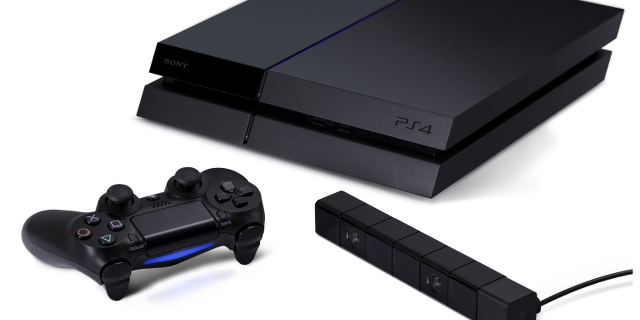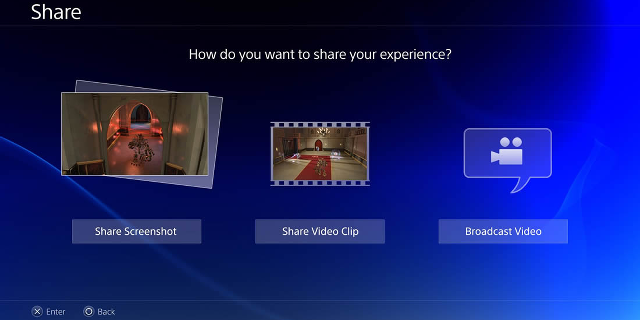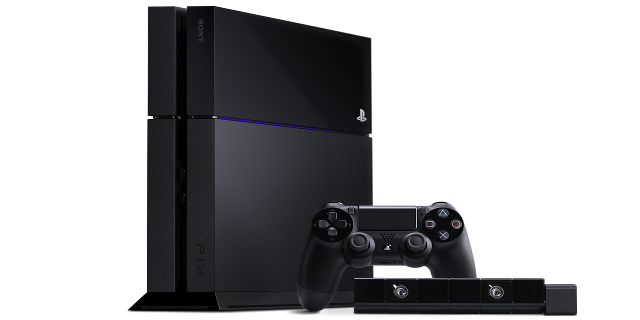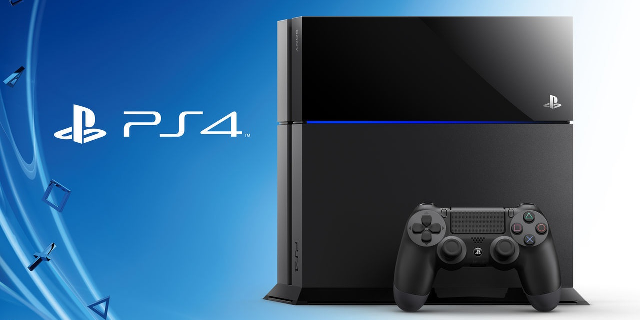The Next-Generation of Greatness
Tomorrow, the PlayStation 4 launches in North America, and with it begins the next generation (or is that now "the current generation") of the console wars. We’ve had our PS4 for a few days now and have vigorously tested Sony’s latest and maybe greatest hardware effort yet. Sony has certainly had the momentum in their corner since E3 and as early as the PlayStation Meeting back in February, but everyone’s wondering if Sony will deliver on the promise of a gaming-centric next-gen console.
Hardware and Peripherals
Upon opening that large, wide, and oddly flat blue box, I wasn’t greeted by that new console smell. Sony is one of the greener tech companies, so they have seemed to done away with that Styrofoam wrapping, and instead opted for thin, clear plastic to wrap the cables and controller, while cardboard separates it all and keeps the console itself safe. Maybe all those past consoles were secretly poisoning me with that… that wonderful smell. Whatever it was, I missed it when opening my PS4.
But that shouldn’t really matter. What does matter is you’ll tuck the empty box away in your attic later and immediately admire what a thing of beauty the PS4 is. Thinking back across the decades of PlayStation consoles, this is Sony’s best-looking design yet. I’m a fan of curves on women, but I never was fond of the rounded surface of the PS3. For the PS4, we’re looking at an angular flat rectangle—a trapezoidal prism, if you will—with a recessed indent all around the body, with the disc slot and USB ports located on the front of the console, and the HDMI, Ethernet, Optical, and PlayStation Camera cords on the rear, along with a brickless AC power cable to cut down on overall space the PS4 takes in your home entertainment center.
The finish is split about 65/35 of matte/glossy plastic and is separated by the PS4’s soon-to-be-iconic blue LED light strip—which turns orange when in standby mode. The glossy part gives it a rich look to it, but it also attracts dust and fingerprints like a magnet. Overall, the design has this futuristic look to it, suitable for a next-gen console and something you’ll be looking at for the next five or so years. The PlayStation Camera has a matching appearance.
Speaking of which, the PlayStation Camera is a non-essential addition that’s more of a luxury item at this point. Do you need it? Absolutely not. But without it, The Playroom app on the PS4 UI is useless—you won’t be able to log in through facial recognition, and the DualShock 4 light bar won’t be sensed for the most accurate experience. These won’t make or break your time with the PS4, but it was admittedly more useful in ten minutes to me than the PlayStation Eye ever was. Since it’s not included, a la Kinect on the Xbox One, it helped bring the price of the PS4 down to a more reasonable $399. But at a $60 separate cost, as cool as it is, your money is better spent on another game or even another DualShock 4—which all have the same price tag of $59.99.

The DualShock 4 is the refinement of 20 years of PlayStation devices, with more responsive, trigger-like shoulder buttons, similar to what was found on the Xbox 360 controller (but even better). The controller plastic has a good grip to it, both in terms of the finish and with the slight roundedness to the handles. The buttons and D-pad are smaller, but are higher off the surface of the controller and have more of a click to each button press. Analog sticks have a better movement zone and convex tip that hold onto the skin of the thumb for more precise control. Dual-motor rumble provides better in-game feedback of what’s going on on-screen. In EA’s NBA LIVE 2014, if the player is a strong enough defender, the controller will vibrate on either side—a slight “tell” that indicates which way the CPU is going to spin toward to go for a hook shot or lay-up. A built-in speaker also provides in-game feedback, but was a bit jarring when audio logs I discovered started shouting out of my controller. All of what you’d find on past controllers has evolved, but a few new additions have potential to be game-changes and aren’t found on competitor’s controllers.
Gone are the select and start buttons, and in their place is a touchpad that can be used for a variety of different things. In Killzone: Shadow Fall, you swipe in any direction to send various commands to your OWL attack drone, while in Assassin’s Creed IV, the touchpad can be used as a pointer to pinpoint where you want to sail to next. The touchpad controls also transition perfectly to the PlayStation Vita via Remote Play.
Another new addition to the DualShock 4 has been borrowed from the PlayStation Move. Sony was onto something with that glowing orb in making a more accurate motion experience and has added it to the DualShock 4 for more precise usage of the Sixaxis motion gyros. But it also has another purpose as a feedback mechanism. For example, when I took too much damage in Killzone: Shadow Fall, the light bar turned red from its steady blue light. If I paused in the midst of a fire-fight, the light would turn yellow. It also differentiates multiple players from one another in local multiplayer situations.

Simply put, the DualShock 4 is the best controller I’ve ever used and is one of the PS4’s biggest selling points. It may not seem like it at first, but spend ample time with the DualShock 4 and you’ll agree. Plus, having the triggers it’ll make the droves of Xbox defectors more comfortable.
User Interface and PlayStation Network Features
Goodbye, XMB! Say hello to the PlayStation Dynamic Menu! The name feels like a lazy effort on Sony’s part, but it does reflect the simple design of the UI. The main menu is presented in a row of tiles ordered by most-recently used, with a What’s New tile stickied as the first item that shows all your and your PSN friends' most recent activity, along with any current promotions PlayStation Network is offering. After that, it’s games, games, and more games. Even the PlayStation Store, now natively built into the UI, is much snappier, getting you downloading and playing games so much faster than ever before. The PlayStation Store even lets you prioritize what portion of the game you download—single-player campaign or multiplayer. Because who the hell buys Call of Duty for the campaign, anyway?
The UI features a built-in web browser that’s a hell of a lot faster and better than the archaic PS3 browser, a tab for Blu-ray movies and video services like Hulu and Netflix (13 apps total at launch), The Playroom app, Music and Video Unlimited, and something called Live on PlayStation where you can watch live broadcasts of gameplay in action. A dedicated Share button on the DualShock 4 lets users grab and upload screenshots to Twitter and Facebook, video to Facebook (complete with a built-in, albeit basic, editor), and in the case of PlayStation LIVE, livestream gameplay on UStream (Sup, Urbanmasque!) and Twitch. Expect a small latency of about 20 to 30 seconds between live gameplay and what’s being streamed. Your mileage here may vary depending on internet connection speeds and other factors.

Tapping up on the D-pad brings up another row of tabs arranged in an XMB-like fashion using familiar icons for things like profile, party chat, messaging, trophies, and settings. It’s possible to set up multiple user accounts, each with a different profile and PSN ID, but now there’s also a Guest account feature with an added layer of security. The Guest can play on your PS4 and even unlock trophies, but once they log off, all data gets deleted. New to the PS4, you can now choose to show your real name and PSN ID, or just the PSN ID if you’re a private person, and set a real picture of yourself via an upload or by syncing your profile with Facebook. Or maybe just stick to one of the abhorrent PSN avatars available if you don’t want to show the rest of the world your mug.
The friends list has been expanded to 2,000 friends, of which you and seven others can party up together for cross-game chat, and you can text messages or leave voice recordings for friends. Trophy hunters now get even more bragging rights; when viewing trophies, they have an additional rarity metric similar to those on Raptr. These are all among features currently found on the PS3 or PS Vita, but have evolved ever so slightly on the PS4. There are a few things missing, though, like DLNA support, MP3s, photos, video files, and 3D Blu-ray playback (features that will be available some time in the future). This is weird considering Sony was the biggest supporter of 3D for the PlayStation 3 for it to be completely overlooked on the PS4. Sony says they’re working on an update to add support for these things, and that they left them out in the first place to make sure the PS4 was ready for one thing at launch: the games.
The UI, while so simple it can feel deceivingly empty or basic, leads to faster access to the games you want to play and the social world surrounding them. As a fan of a particular game or series, you can not only get into the game faster than ever, but you can choose which part of the game you want to boot into, view what your friends think of it, watch live streams of your competition, and instantly access content related to it, be it DLC or another game from the franchise. This will keep you more engaged, saving time wading through menus and options only to eventually get into the game you wanted to play. And it gets the job done extremely fast.

Sony has also intelligently (from a business standpoint) streamlined the UI to allow easier content purchases. The PlayStation Store is fast, but it’s not the only way to get to buy content. If you happen to notice a friend playing a certain game in your What’s New feed or broadcasting gameplay via PlayStation Live and the Share button, clicking on that area will also bring up a box that lets you buy the game right there while you’re watching gameplay. The option is always there to buy something, but never feels like an in-your-face advertisement or a nuisance trying to get your attention—it’s just built into the UI inconspicuously.
Also a wise decision by Sony financially and to the benefit of consumers, is making PlayStation Plus mandatory for online multiplayer. Sure, some free-to-play games can avoid that pay threshold, but if you want to play online you have to pay, much like has been the case on Xbox LIVE for some time. With PlayStation Plus, though, you get the added benefit of getting free content, with Contrast and Resogun being available at launch through the service. But that’s not all gamers get for their PlayStation Plus money—they also get a more stable service thanks to better servers and resources essentially self-funded through PS Plus subscriptions. It’s long overdue, and something that has helped Xbox LIVE thrive over the years, and will hopefully do the same for the PlayStation Network.
The PS4 also plays nice with other devices. A PlayStation App is now available on iOS and select Android phones and tablets that through the app you can turn the PS4 on or off, make purchases, and start downloads, or even add friends right from the app. The app also can turn the device into a second screen for games, much like the PS Vita can do when connected to the PS4. The PS Vita, however, expands on this connected experience, allowing you to play PS4 games remotely. The Remote Play experience, like the live-broadcasting of gameplay, will differ depending on a number of factors like internet speeds and distance from the PS4 and/or Wi-Fi router. In the ideal scenario, the PS Vita plays PS4 games with little to no latency, giving the option of off-TV gameplay similar to what is found with the Wii U and its GamePad. This set-up is a very pricey option, though, considering the price of the PS Vita and PS4 combined. I don’t anticipate many people spending the $199 on a Vita simply for this functionality, unless you wanted a Vita in the first place (there are some of you out there, right?). It is, however, a treat for those exceptionally dedicated PlayStation gamers out there that own both devices.
Launch Line-up, Outlook, and Conclusion
As nice as the PS4 may look or how well the UI may function, a console is only as good as its games. And at launch the line-up is looking slim. Killzone: Shadow Fall is the stand-out exclusive title, with Knack failing to capture much attention or buzz—something which at a glance seems understandable. Games like Battlefield 4 and Assassin’s Creed IV: Black Flag do look prettier and have better framerate and resolution, but aren’t quite the jump to next gen many are expecting with new consoles the same way Killzone: Shadow Fall is—a game that was built solely for the PS4, taking full advantage of the new hardware. Unless you’re a dedicated PlayStation fan or an early adopter, or just dying for new hardware after such a lengthy cycle last-gen (I happen to be all of the above), you’d be fine to pick the PS4 up next year.

That’s not to say you wouldn’t be happy with the PS4 now if you have one pre-ordered—as a gamer, you’ll love it. And as a PlayStation console, you know the investment in PlayStation-exclusive games from studios like Naughty Dog and Sony Santa Monica will pay off sooner rather than later. But truth be told, only Killzone: Shadow Fall appears to be taking advantage of that 8GB of GDDR RAM and x86 CPU—all that raw power that the PS4 has available to developers. Indie titles are plentiful at launch, and that’s absolutely fantastic, but it’s the AAA games that fully utilize and sell hardware.
The PlayStation 4 has a lot going for it at launch with its gorgeous design and simplistic UI, and it's only the beginning of the Greatness that Sony is promising. It’s been designed from the ground up for the players and for the games we play. That alone makes the PS4 a stellar console now, and for years to come. Greatness awaits you on November 15th—are you ready for it?
-
User interface is more streamlined than the XMB
-
…and gets you into the game faster than ever before
-
Can be underwhelming at first
-
…until you dig deeper
-
Instantly sharing screenshots and video
-
Lots of power under the hood for games
-
…that’s not yet being fully utilized by launch titles
-
But has a bright outlook for future exclusive content
-
DualShock 4 is the best controller ever
-
Paying for online gaming
-
Lacking a variety of media playback features found on PS3







